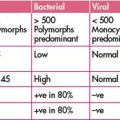Chapter 48 Student’s guide to the emergency department
The emergency department can be the highlight of a student’s day or the place where you feel most out of place, or both at the same time. Hopefully this chapter will outline some practical tips for getting the most out of this wonderful resource.
ADVANTAGES OF THE EMERGENCY DEPARTMENT
Learn to handle emergencies
As a student my biggest fear was that I would actually kill someone! My second biggest fear was failing exams. And the third was, how do I actually save someone’s life? I’m not just talking about the big trauma cases but also the smaller practical procedures. This is one of the greatest things emergency department can teach you. By spending time there and talking to the doctors, you learn how to actually prioritise management and the basic couple of things that you need to do right now before you stop and work out the clinical management guidelines. You can also learn how to actually do them.
Get a wide range of clinical material
With increasing specialisation of medicine and increasing numbers of students, often you only get to experience a limited number of different terms. For instance, you may never have had the opportunity to do a cardiology term. Emergency department is the place where you can compensate for this deficit. All the acute cardiology patients will come through the emergency department so you can see how they are managed.
HOW DO YOU GET THE MOST OUT OF IT?
So how do you access this gem?
Go to emergency department regularly. If you become a familiar face to staff they very quickly go out of their way to help you meet your learning goals or just to be friendly. A good tip is to leave the hospital via emergency department. This forces you to see if there are any interesting patients when you know you’ve got nowhere better to be. Even if you only see one patient a day, you’ll start to become part of the hospital team.
Find the things that are useful to you as a student but that no one else cares about
There are many things that happen in a hospital that are commonplace, barely thought about activities but that can be really useful to a student. For instance, most people who come into emergency department get an ECG and some blood tests. If you regularly look up the results and try to interpret them, whether you know the patient’s history or not, you can become very good at interpreting results. This is easy to do and doesn’t need any doctor’s or nurse’s help—you simply look them up and then check how the doctor interpreted them.
Find a friendly face and take advantage of them!
In every department there are a few really incredibly nice people. When you find them, make friends and then ask them about all those niggly things you need help with. They understand how hard it can be to be a student and they’re more than happy to help, but you need to ask them. The worst they can say is ‘no’.




